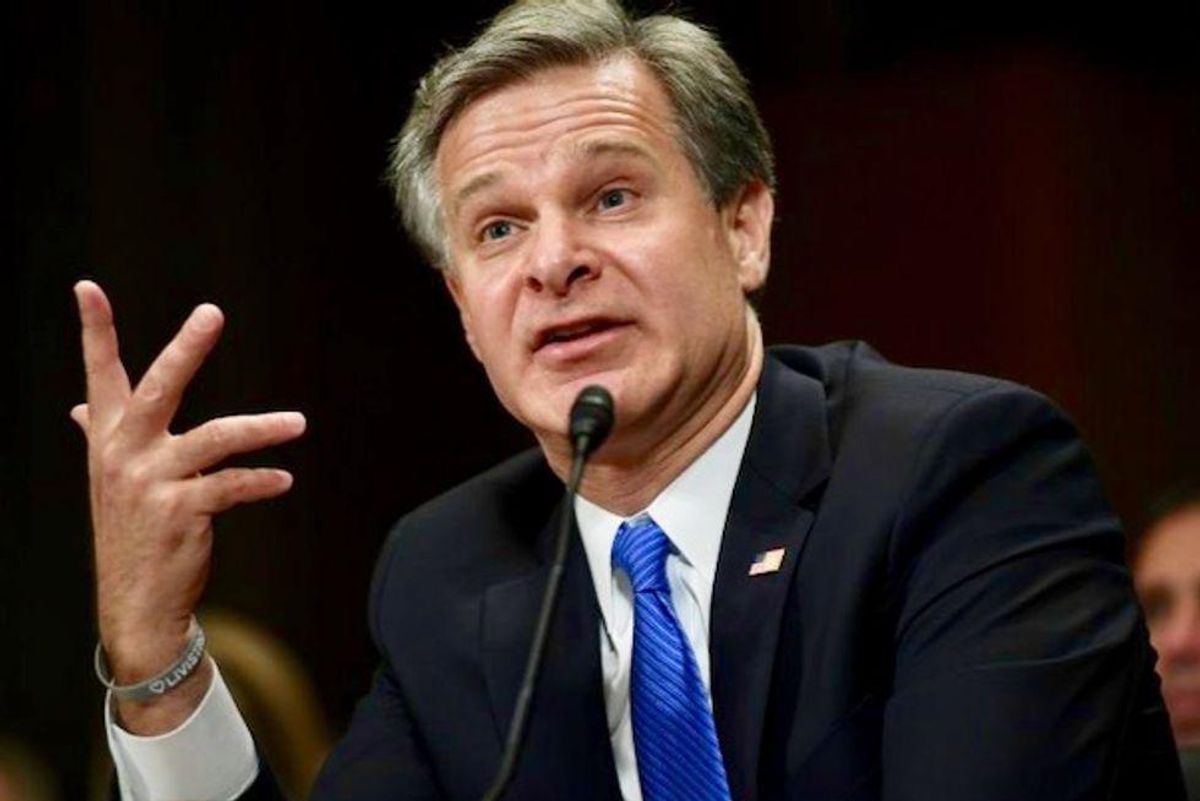
FBI Director Christopher Wray has never given a full explanation to the American people about how the state and national FBI offices failed so profoundly on the Jan. 6 attack.
"Christopher Wray is leading the FBI at a time when the threat environment is as dramatically different from those post-9/11 years as at any other point," MSNBC host Nicolle Wallace said to New York Times reporter Michael Schmidt. "What is your sense of how he has transformed the bureau to deal with the threat?"
Schmidt said that there is a question about how much counterterrorism is focused on foreign issues over domestic threats, which was the norm after Sept. 11. Now that there are a heightened number of threats from within the U.S., but no real understanding of what the FBI is doing to deal with such a threat.
POLL: Should Trump be allowed to run for office?
Andrew Weissmann, who previously served as the FBI's general counsel under Director Robert Mueller, recalled a story of a conversation with former President George W. Bush who said he didn't care about bringing the terrorists to justice as much as he cared about preventing the next attack. It was the "marching order," he said, that changed the FBI.
Now that the country faces an increase in domestic terrorism, it means another shift, where the best agents focus on militia groups and anti-government extremists. So, it requires a new set of expertise, new agents and different targets.
"Many people say that one of the reasons that the FBI and other agencies really dropped the ball on Jan. 6th and were very slow to react is because they weren't thinking and correctly evaluating the problem of the Proud Boys and the Oath Keepers," Weissmann continued. "The internal text messages and communications. And the Secret Service is an example of that. These were white supremacy groups where they have not been traditionally viewed as posing the same kind of threat. And I think that was obviously wrong. I think there was a tinge of racism in that. And certainly comparing it to how they responded to Antifa."
He went on to say that the FBI must evolve, but also be held accountable.
"I would say Chris Wray still has a lot more work to do," Weissmann closed. "You know, he still has not actually given a very public, candid account of what exactly happened on Jan. 6th and the intelligence failures and the inaction with respect to the intelligence they did have. And so it's very hard to move forward without that kind of very public accounting, which I think would have happened under -- certainly under Robert Mueller. He sort of beat that into us, of being super candid about failures and how we're going to deal with them going forward."
See the full discussion in the video below or at the link here.
Chris Wray's failure of accountability on Jan. 6 www.youtube.com



